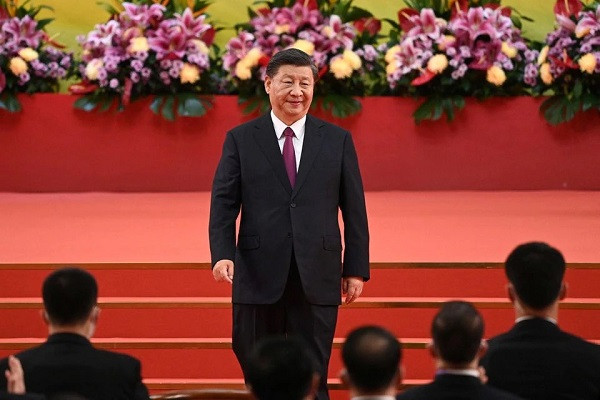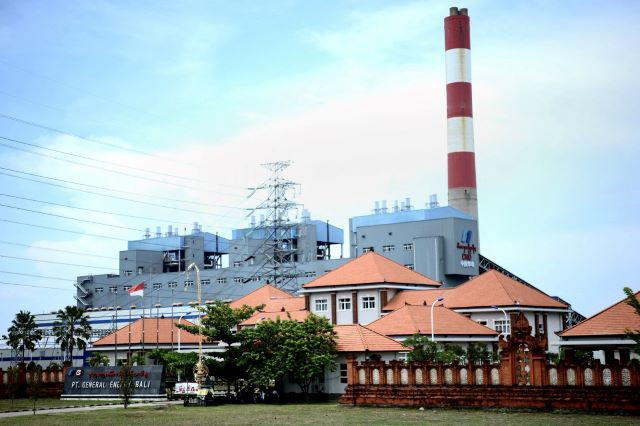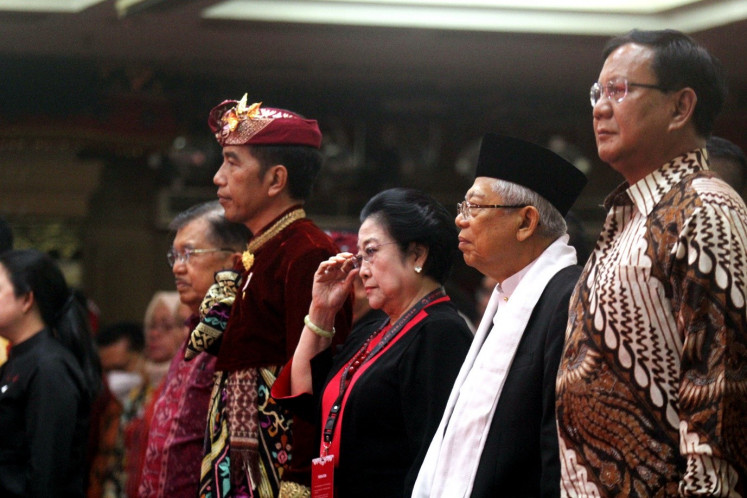Can China inspire a rethinking of liberal democracy?
Still, it is worth analyzing the intricacies of China’s political system especially when there has been a concerted effort to push back against the recently held Democracy Summit cohosted by the United States.
Change Size

C
an Wenling, a mid-size county-level town in the eastern province of Zhejiang of China, become a template for better, more responsive governance in Asia?
I have always been intrigued by the complexities of China’s political system.
As explained by Ian Johnson, a senior fellow at the Council on Foreign Relations, in a video, China is not just a totalitarian regime as if a “Mussolini” were in power.
It is something different and we should not fall into the temptation of drawing generic simplifications and equating President’s Xi Jinping hegemonic and worrying expansion of China’s ambitions with a full dictatorship.
In short, the People’s Republic of China cannot be compared with the Democratic People's Republic of Korea of the supreme leader Kim Jong-un.
Now objectively speaking, there is no doubt that, under President Xi, there has been a hardening against any resemblances of limited civil and political liberties that were in place before his rise to power.
Yet notwithstanding his unprecedented third term and the consolidation of power centered around himself, China is much more than a one-man show.
A disclaimer now.
I do remain very critical of the human rights conditions in many parts of the country, especially against the Uyghurs.
I believe that Volker Türk, the United Nations High Commissioner for Human Rights, is doing the right thing when he says that he wants to continue to engage Beijing in dealing with the findings of a damning report published at the 11th hour by his predecessor.
Still, it is worth analyzing the intricacies of China’s political system especially when there has been a concerted effort to push back against the recently held Democracy Summit cohosted by the United States.
The counternarrative from Beijing is that democracy is not just a Western construct.
Rather, the message goes, there is a variety of models or systems that can embrace democracy.
China likes to refer to its own model as “Whole-Process People’s Democracy Under CPC Leadership [...].
“Democracy is a concrete phenomenon that is constantly evolving rooted in history, culture and tradition, it takes diverse forms and develops along the paths chosen by different peoples based on their exploration and innovation”.
This is an excerpt from a white paper titled "China: Democracy That Works” that was published by China's State Council Information Office in Dec. 2021.
The same document further, exhaustively, explains this model that in essence “is a combination of electoral democracy and consultative democracy, and is applied through a combination of elections, consultations, decision-making, management and oversight”.
I believe that while it is important to criticize Beijing where criticism is due, at the same time it is also essential to at least make an effort to better comprehend some innovations in a political model that is drastically different from the Western concept of liberal democracy.
At the same time, I find some valid points in China’s recent messaging that the US and the West still have so much work to do in terms of strengthening their own political systems.
Despite promoting democracy around the world the way that the US, the European Union, Canada and Australia are doing can easily come under attack, it is still a worthy effort.
Yet the West needs to be humble in this endeavor because liberal democracy as it is now is proving not as effective as it should and there are plenty of examples, from Washington D.C. to Paris.
It is here where China’s model of democracy deserves some attention and where a city like Wenling could offer a real template on real deliberative politics.
It is a place where in only four years, between 1996 and 2000, there were more than a thousand consultative meetings.
Those studying deliberative democracy, based on bottom-up citizens’ direct participation, are well aware of the attempts being made by Beijing in the last few decades in this regard.
While China does not allow freedom of expression in the way that Western societies do, there is a “trickle-up” model for the people to engage with the system.
I am not only talking about the system of local and regional People’s Congresses that are in place, a model that has on its peak, the National People’s Congress.
I am not even referring to the equally complex model of consultation through the Chinese People's Political Consultative Conference (CPPCC) that includes also nonparty members, ethnic minorities but also eight parties coopted by the ruling party.
What I am referring to it is other forms of deliberative democracy happening at the very grassroots level, especially at the village level where citizens can even elect their representatives.
It is not a perfect model and does not provide for the same total transparency we might expect in the West but it is a system that seems, apparently, to work.
To better understand this reality, I got in touch with Baogang He, a professor in International Relations at Deakin University.
Baogang He is one of the most authoritative experts on deliberative democracy in Asia and the author of numerous books on the subject.
He recently coedited Deliberative Democracy in Asia, which brings together the best scholars on deliberations in Asia and is really worth reading.
Throughout his career he has analyzed the dynamics of village democracy in China and, from what I understand, it is not a fake.
In studying these practices, (actually, we are not talking of a few pilots but rather a massive exercise involving 734,700 villages so far) he and his colleagues carried out several surveys.
They concluded that “since their implementation in the early 2000s, the majority of village meetings have increasingly been regularized, and the number of village deliberation meetings have also increased”.
“The respondents of the surveys had also confirmed their opportunities to influence village decisions through participation in village deliberation meetings.”
Let us not forget that good governance also means inclusive and responsive governance with mechanisms that allow people to engage with the system and express their views.
According to Baogang He “some meaningful democracy practice can be found in villages. The higher-level the political unit goes, the lesser democracy has become”.
In relation to the ways the National People’s Congress and the CPPCC can claim to represent people’s will, there are clearly limitations.
“Chinese submission of proposals has democratic elements in the sense that it collects and represents the opinions of people; often it touches hot topic,” Baogang He explained to me.
He added, “It lacks ‘empowerment’ in the sense that only the CCP [Chinese Communist Party] decides which one will be accepted. People and proposers have little power to force the government to adopt some proposals”.
Then I asked a big question: how interested is President Xi in further scaling up these models?
The answer from Baogang He could not be more unequivocal.
“Certainly, democracy is not the priority for Xi who is more interested in geopolitics and China’s global leadership, and even uses the Western democracy crisis to advance his course”.
“The Ministry of Civic Affairs”, Baogang explained, “has sponsored and initiated a project of improving and consolidating village deliberation. It selected 100 villages as an experiment. I don’t have any empirical evidence about this, and it is too early to make any judgment. However, it is unlikely to “scale up”.
If this were the case, it would be a real pity.
China could evolve into a better political system that, by embracing even stronger forms of deliberation, could also open up in matters of human rights.
This is something that could be inspirational and probably a great “seller” to the whole world that could even lead to a rethinking of the classic liberal democracy toolkit.
The writer comments on social inclusion, youth development, regional integration, SDGs and human rights in the context of Asia Pacific.









